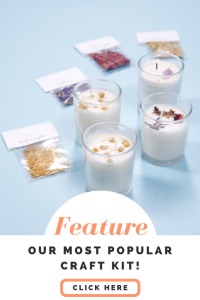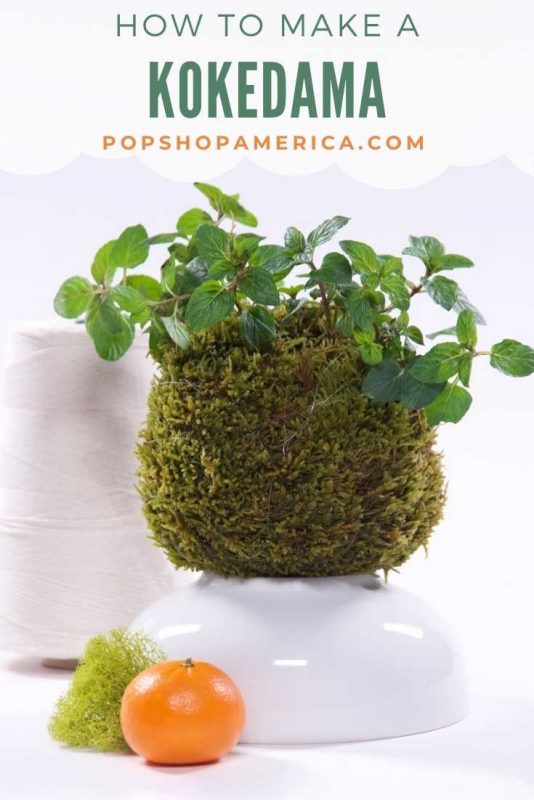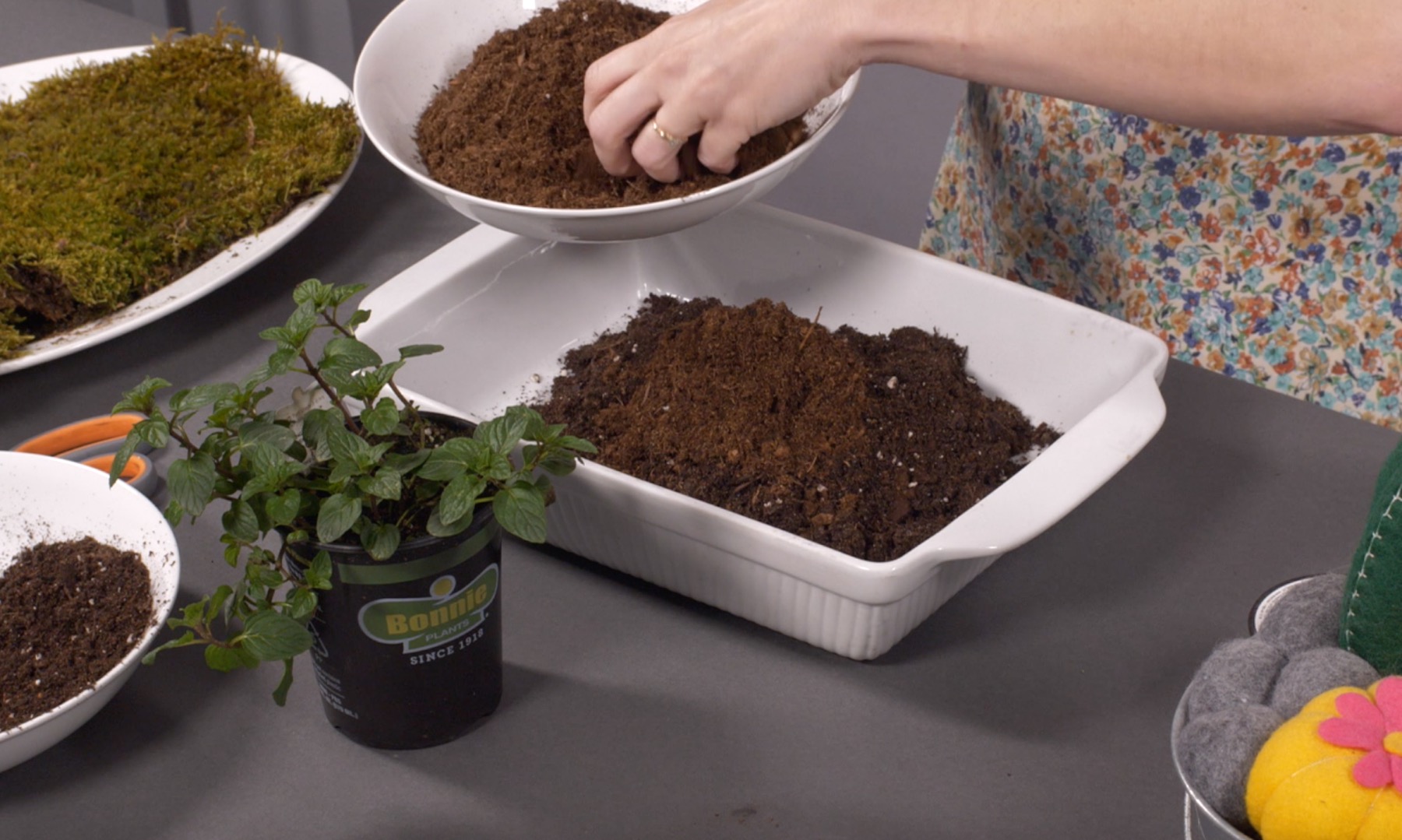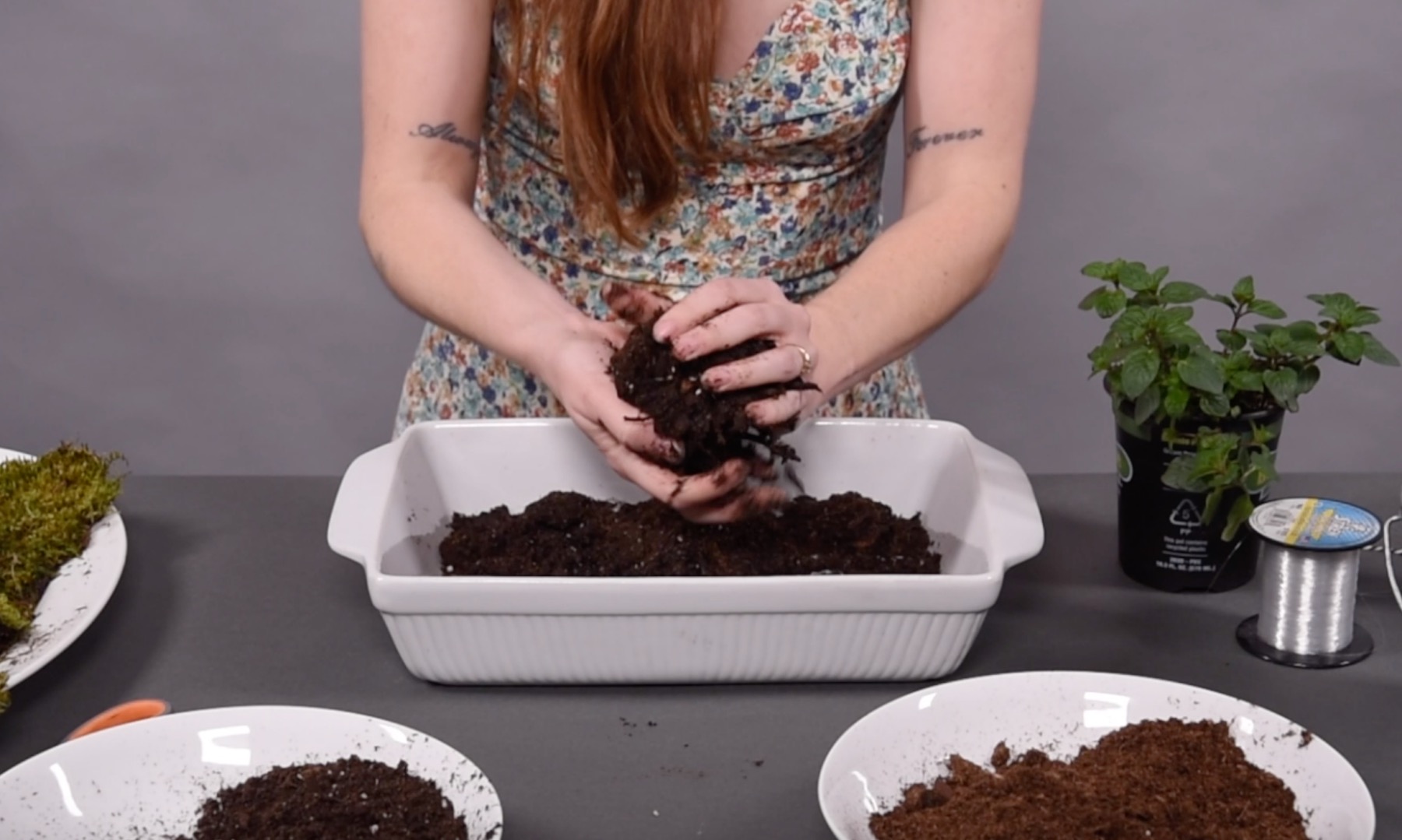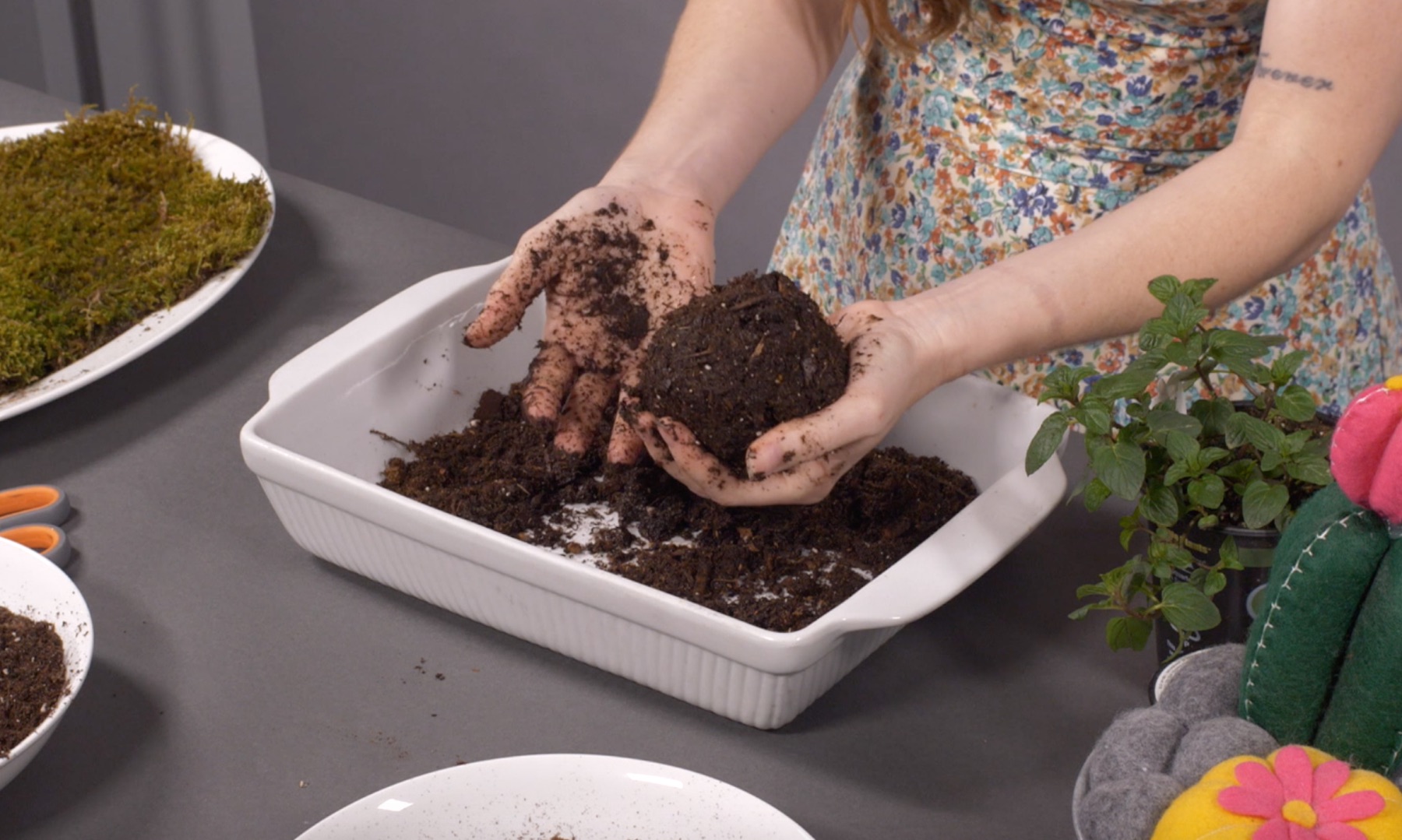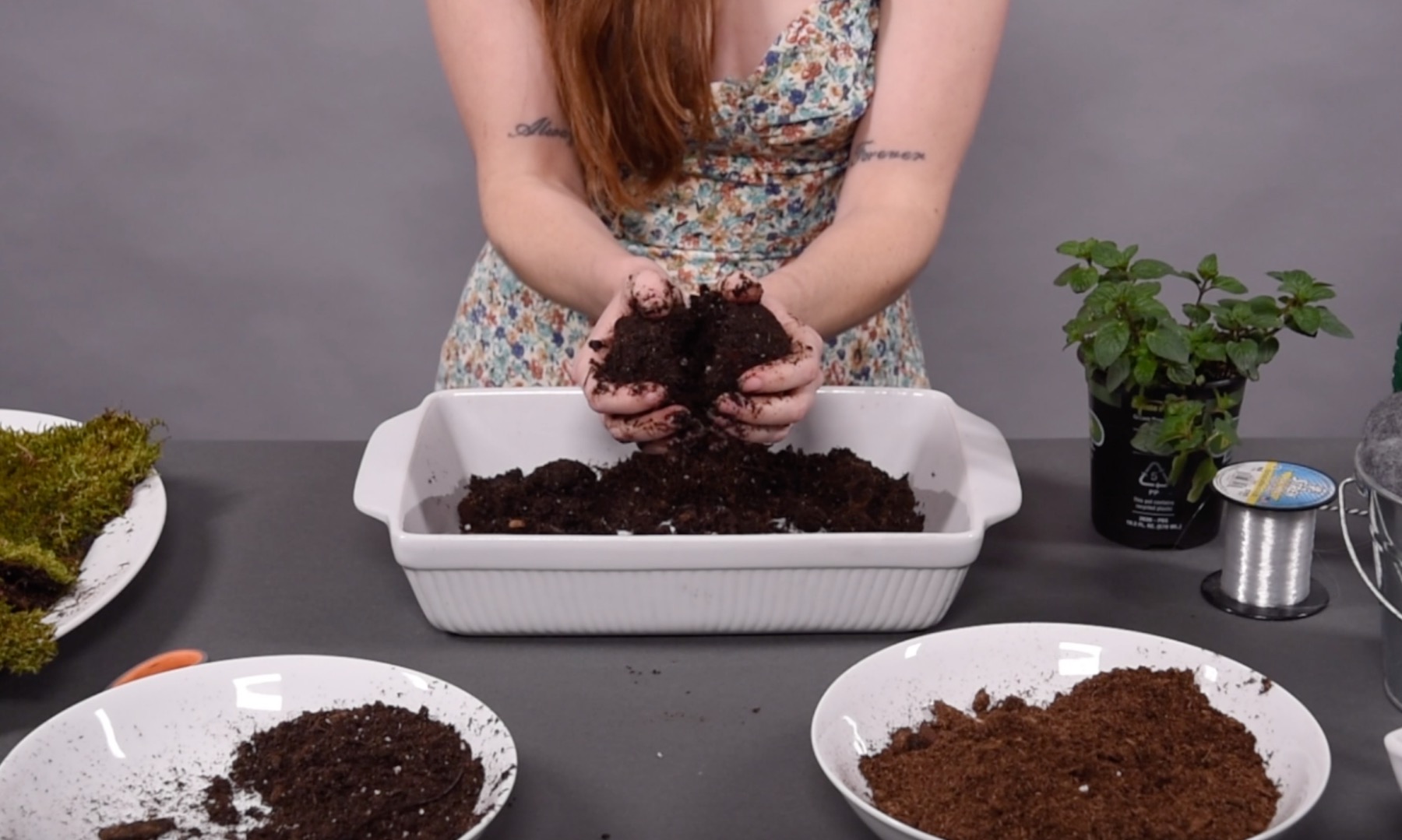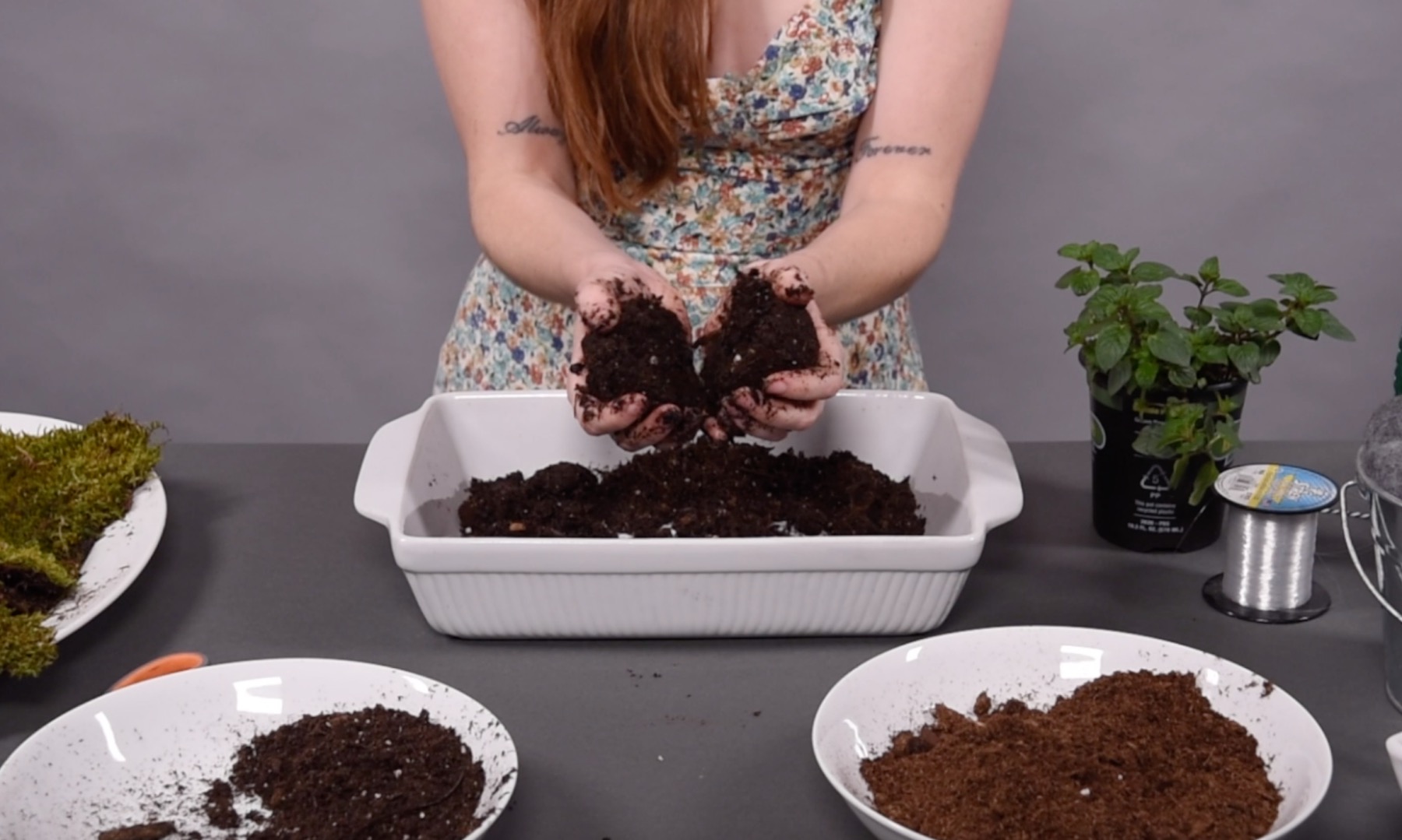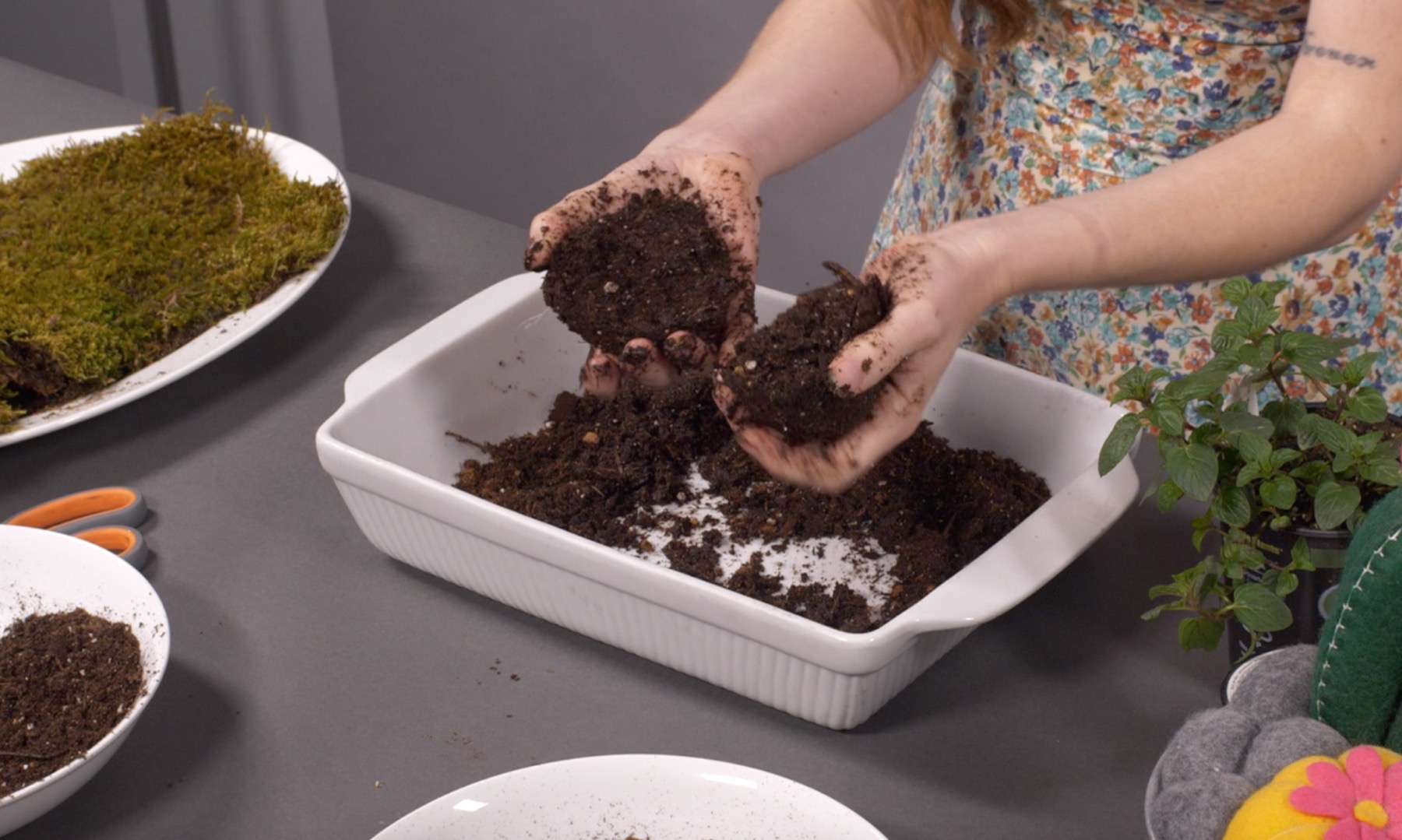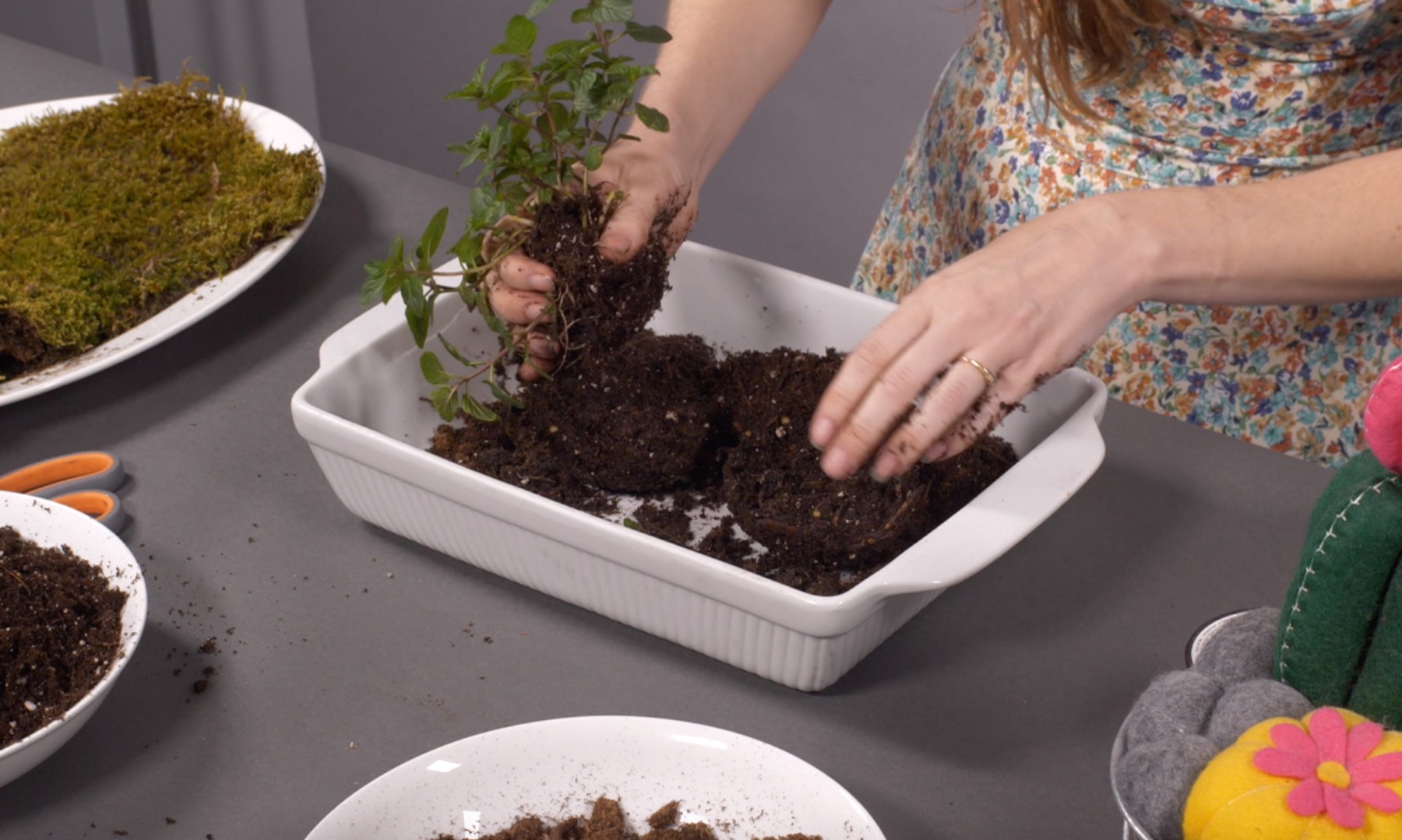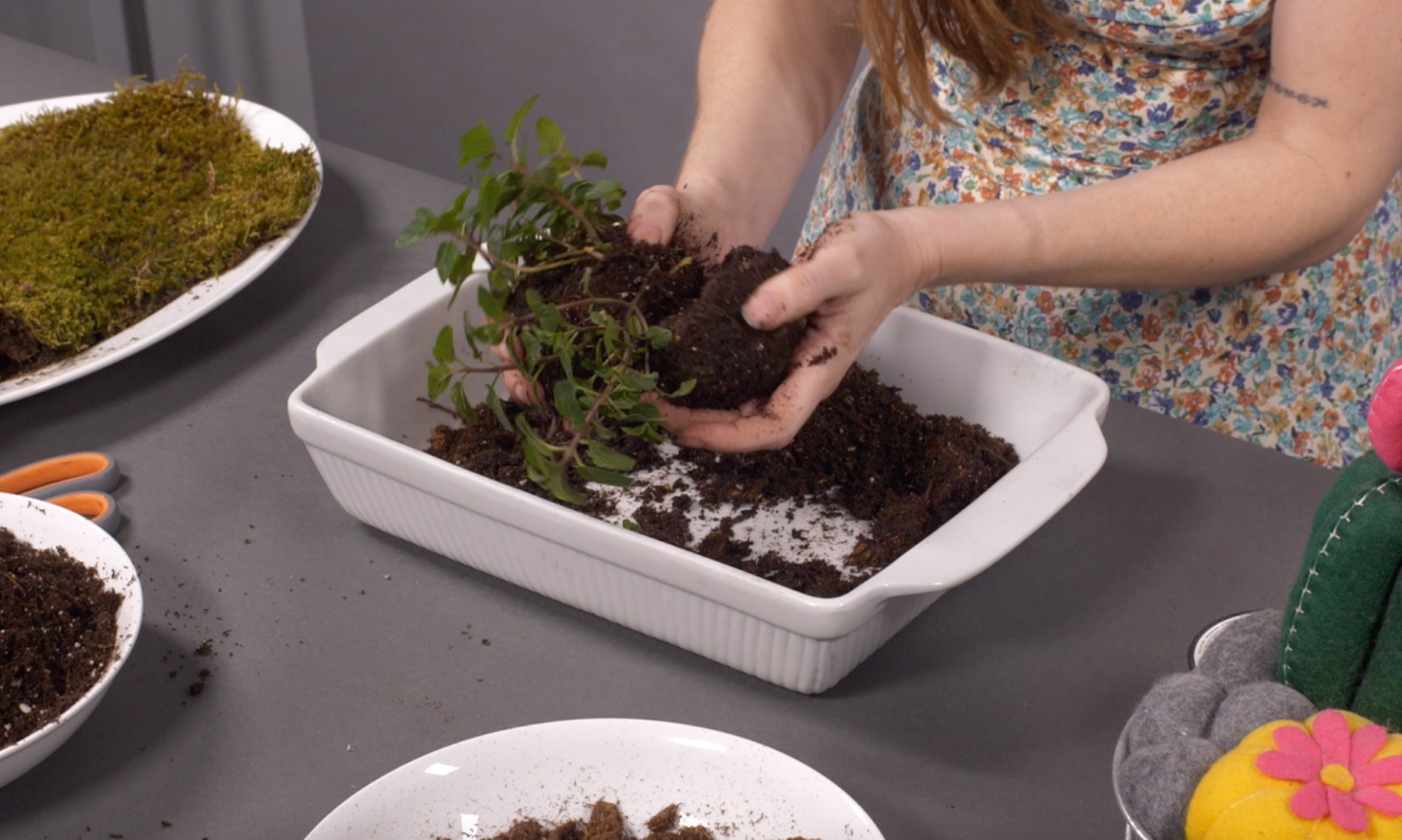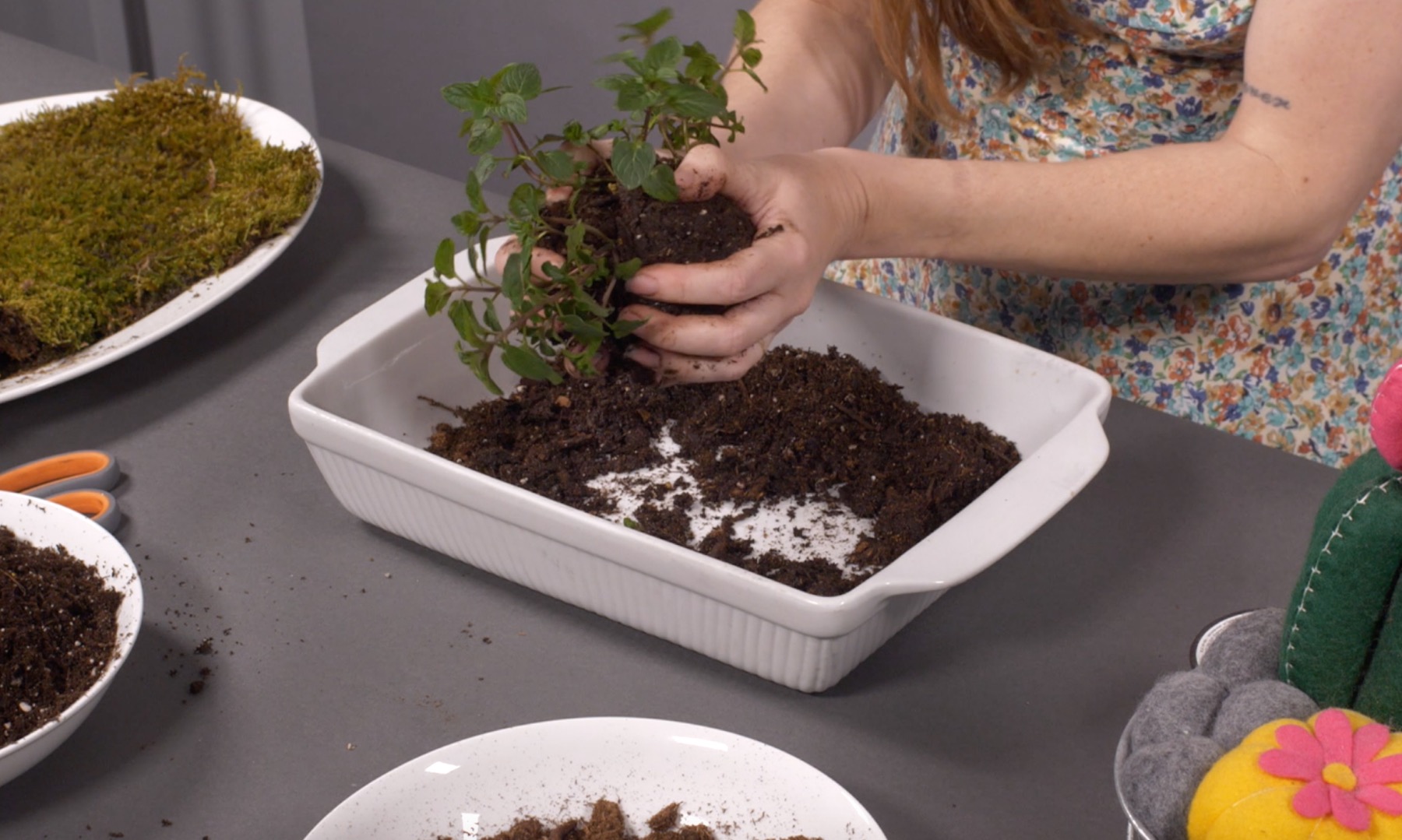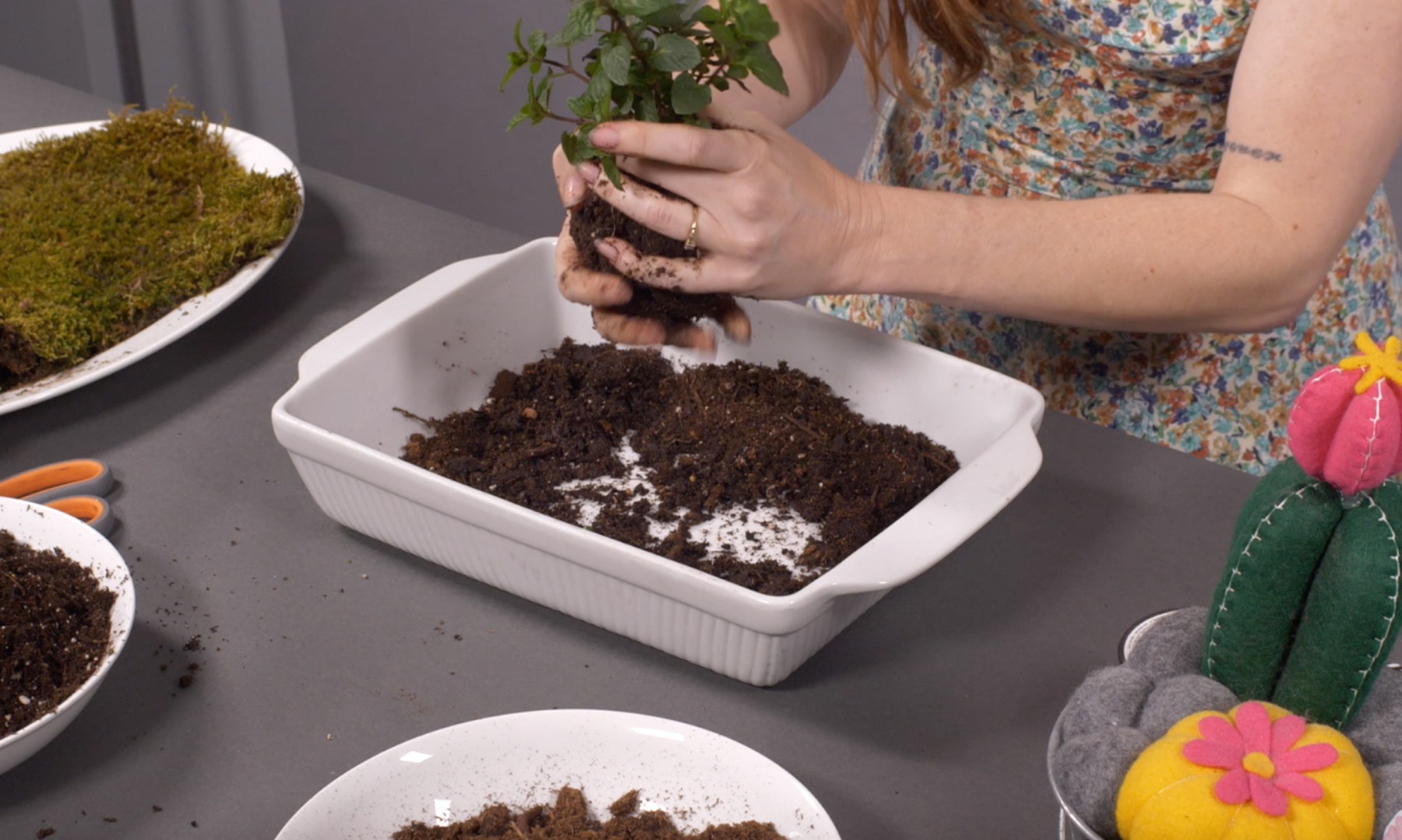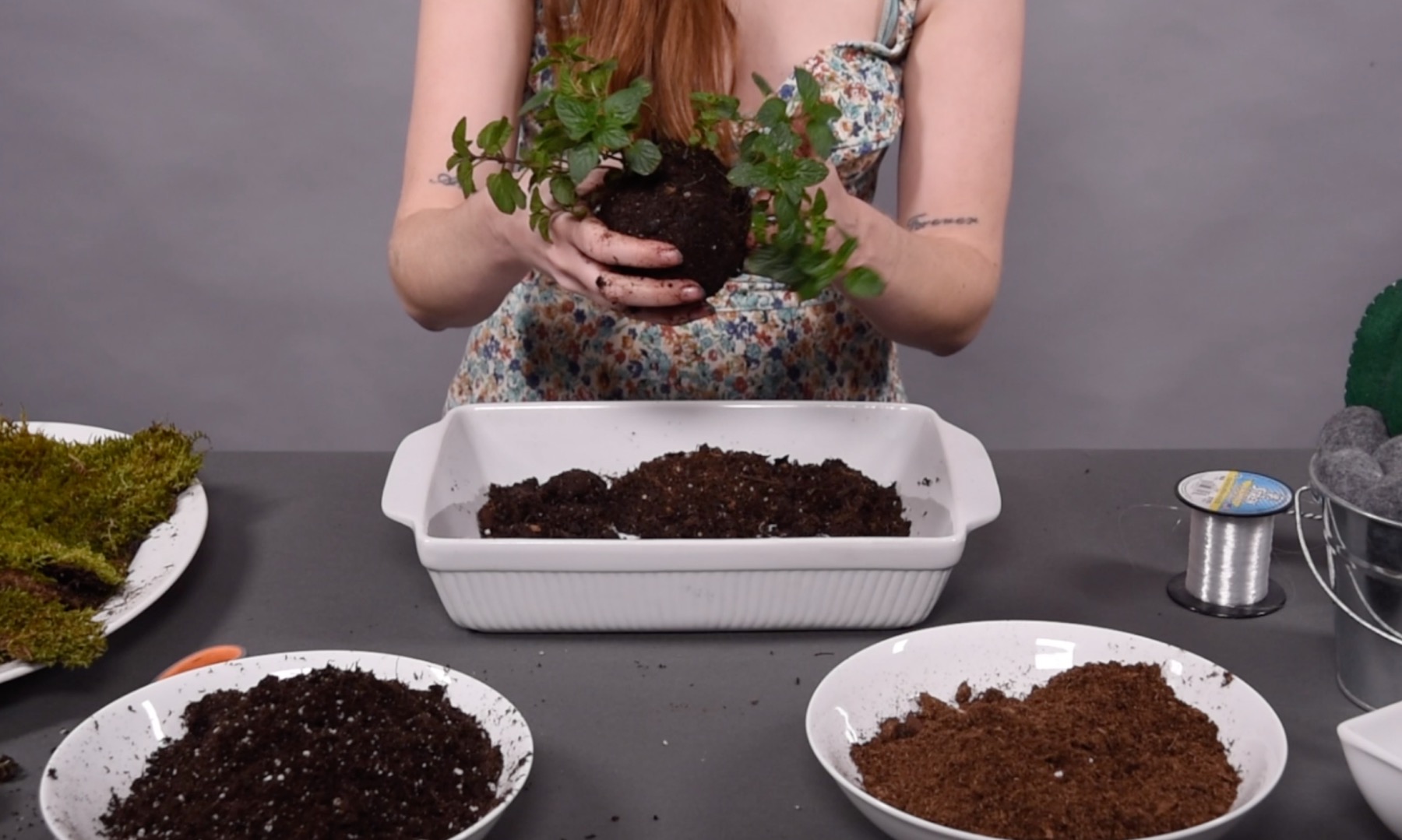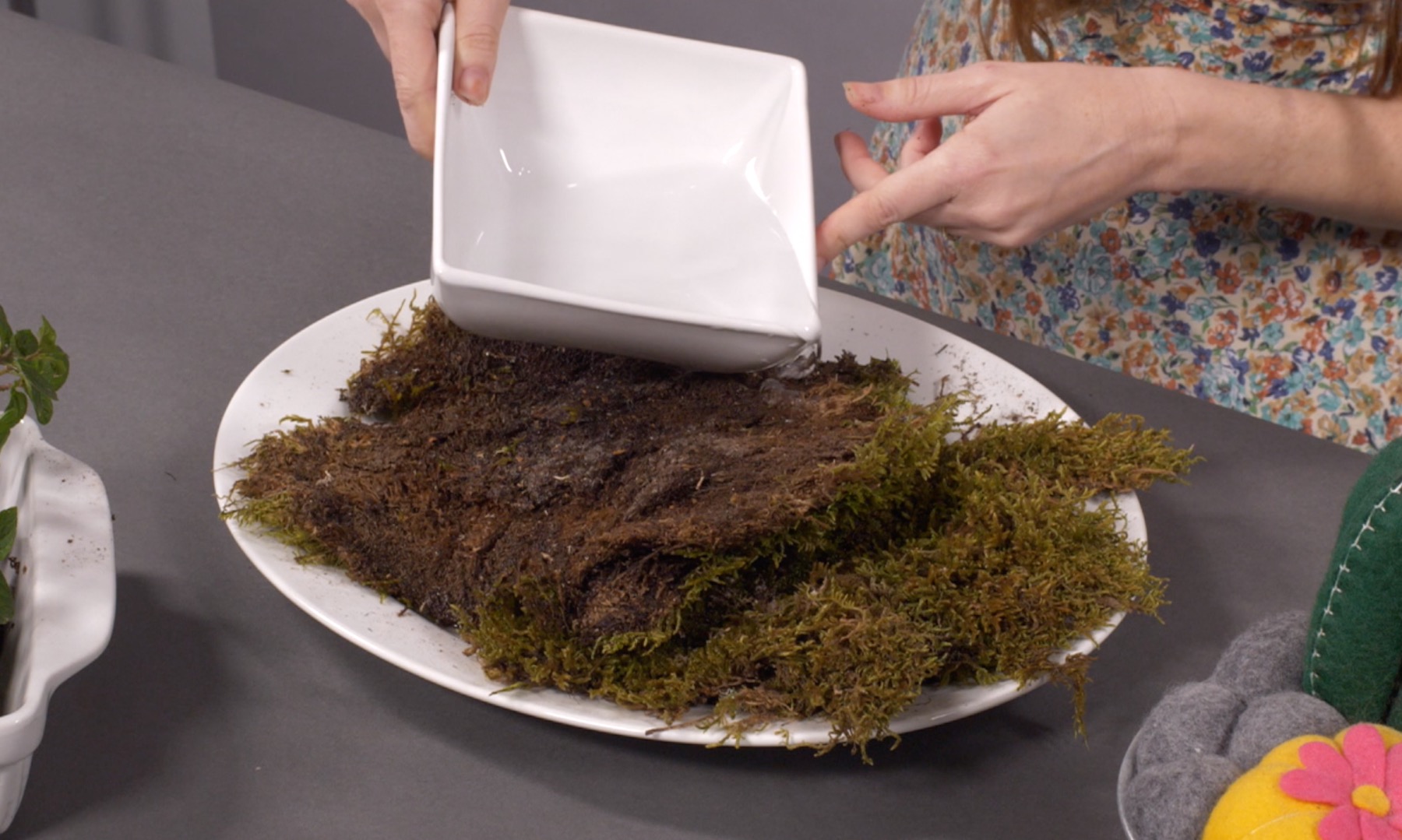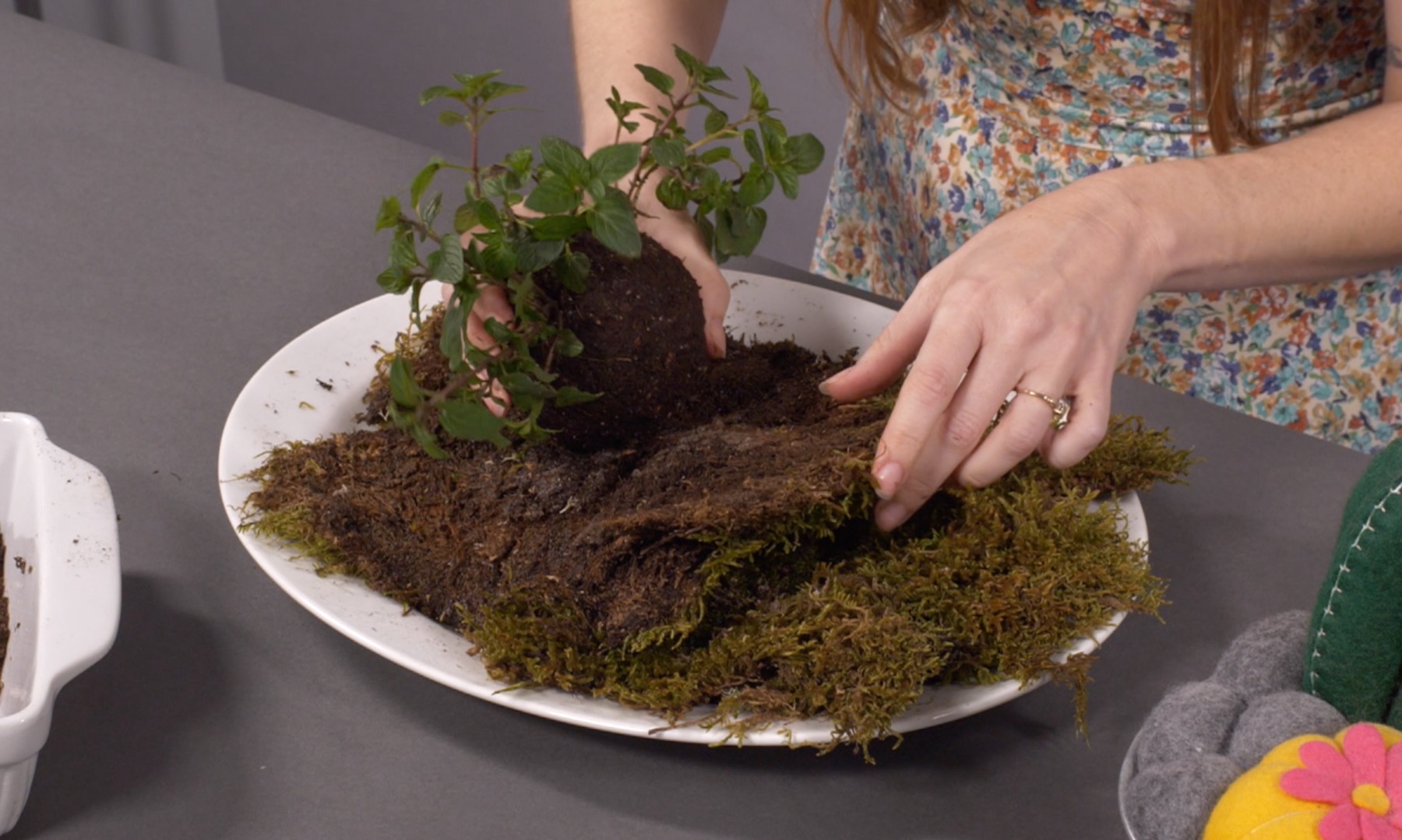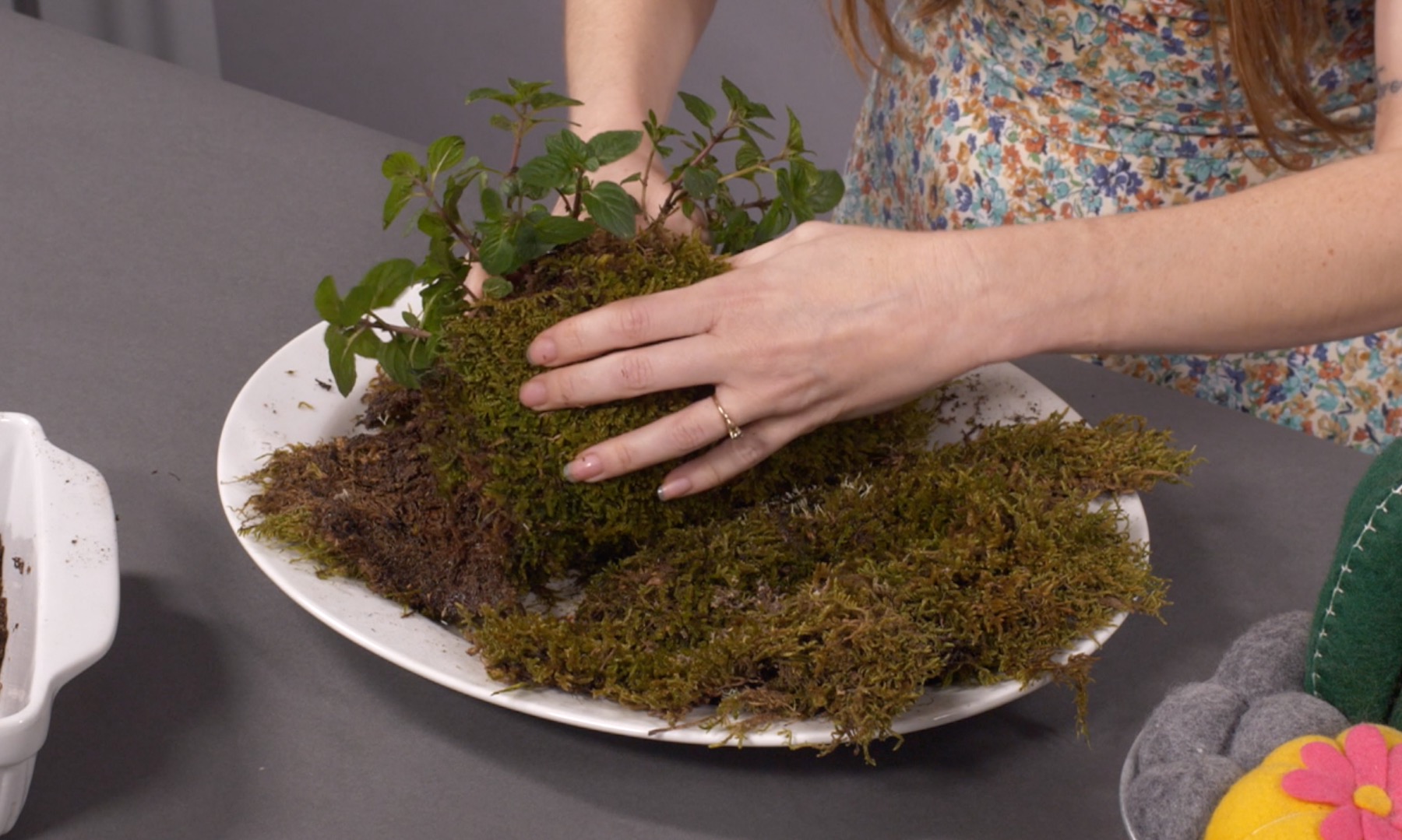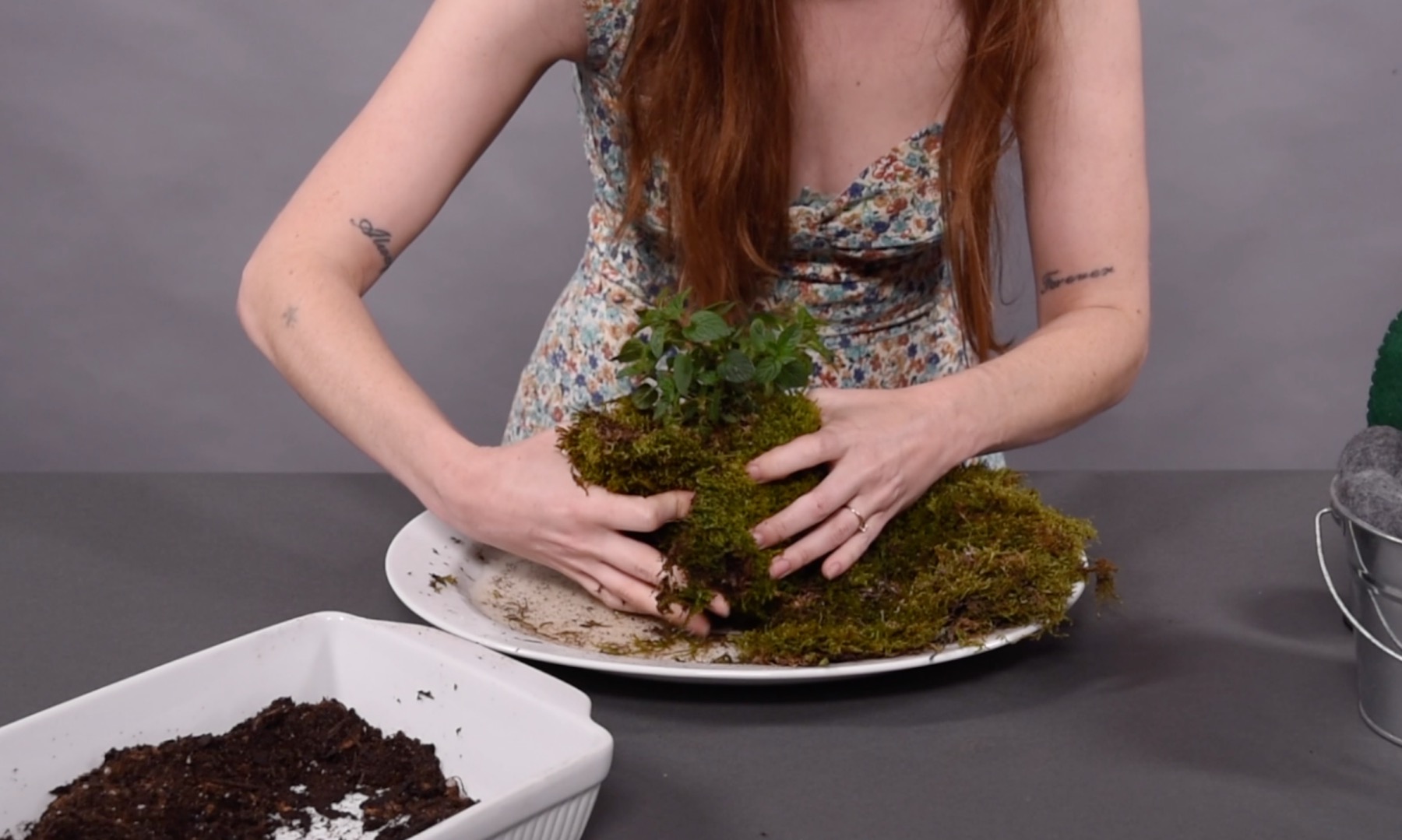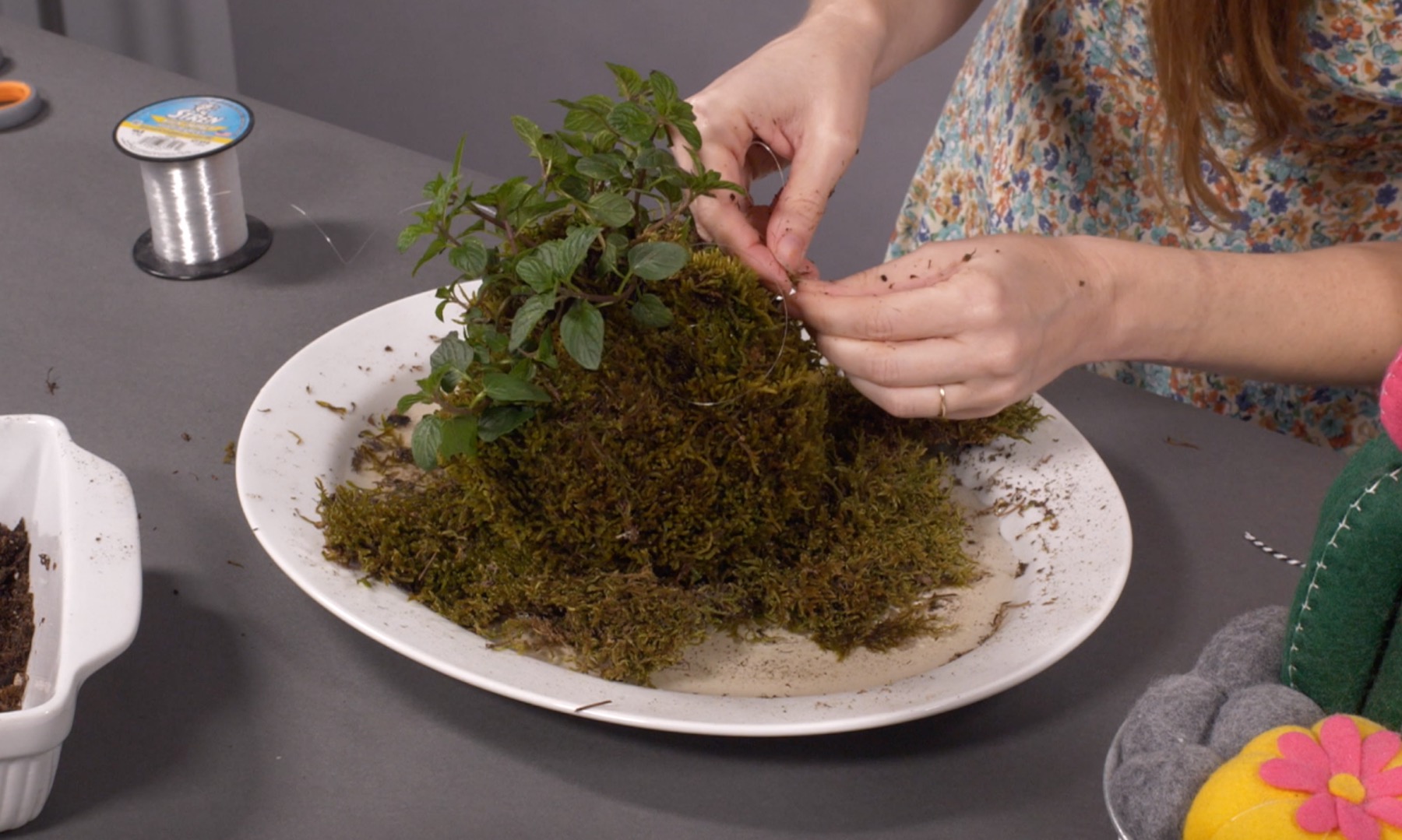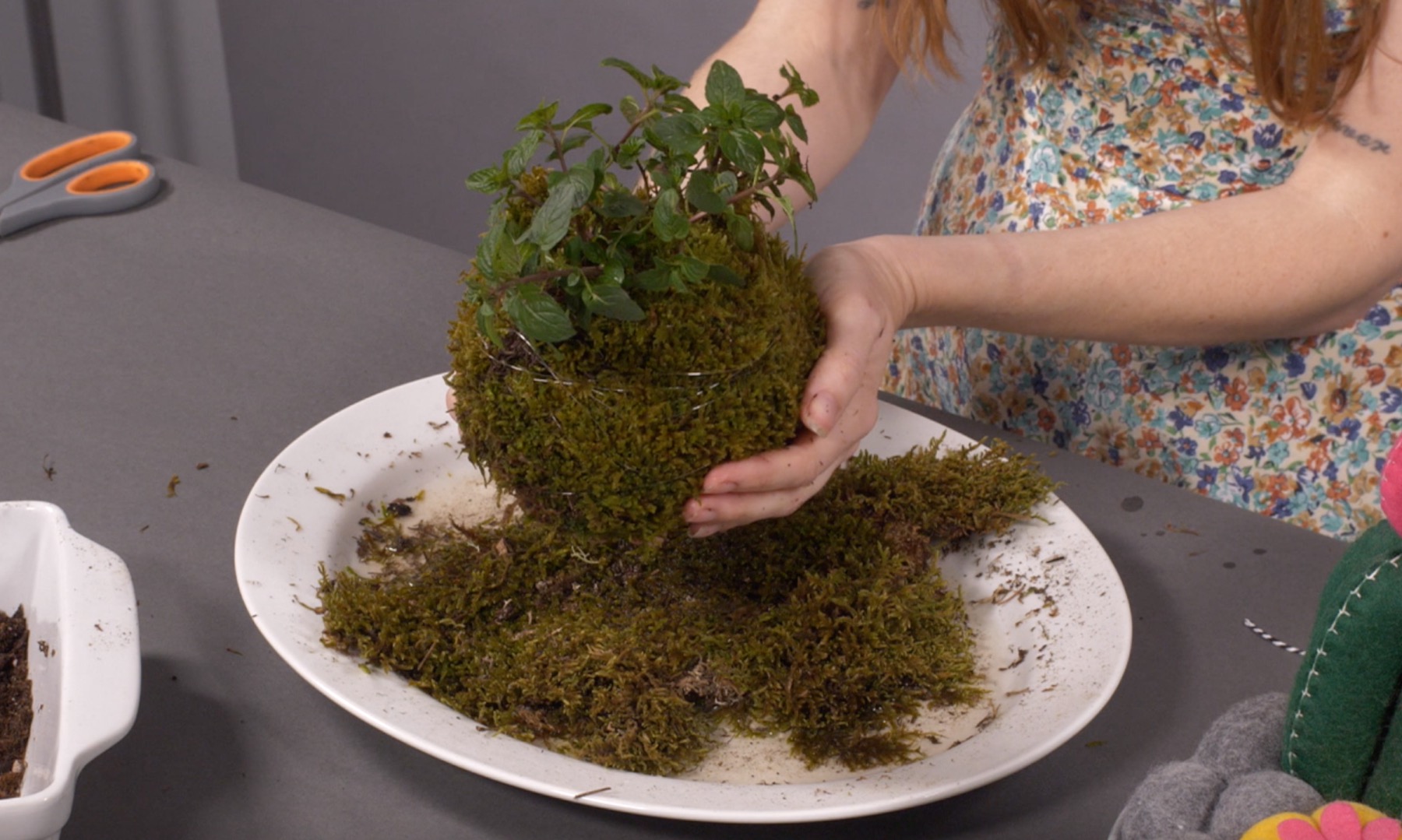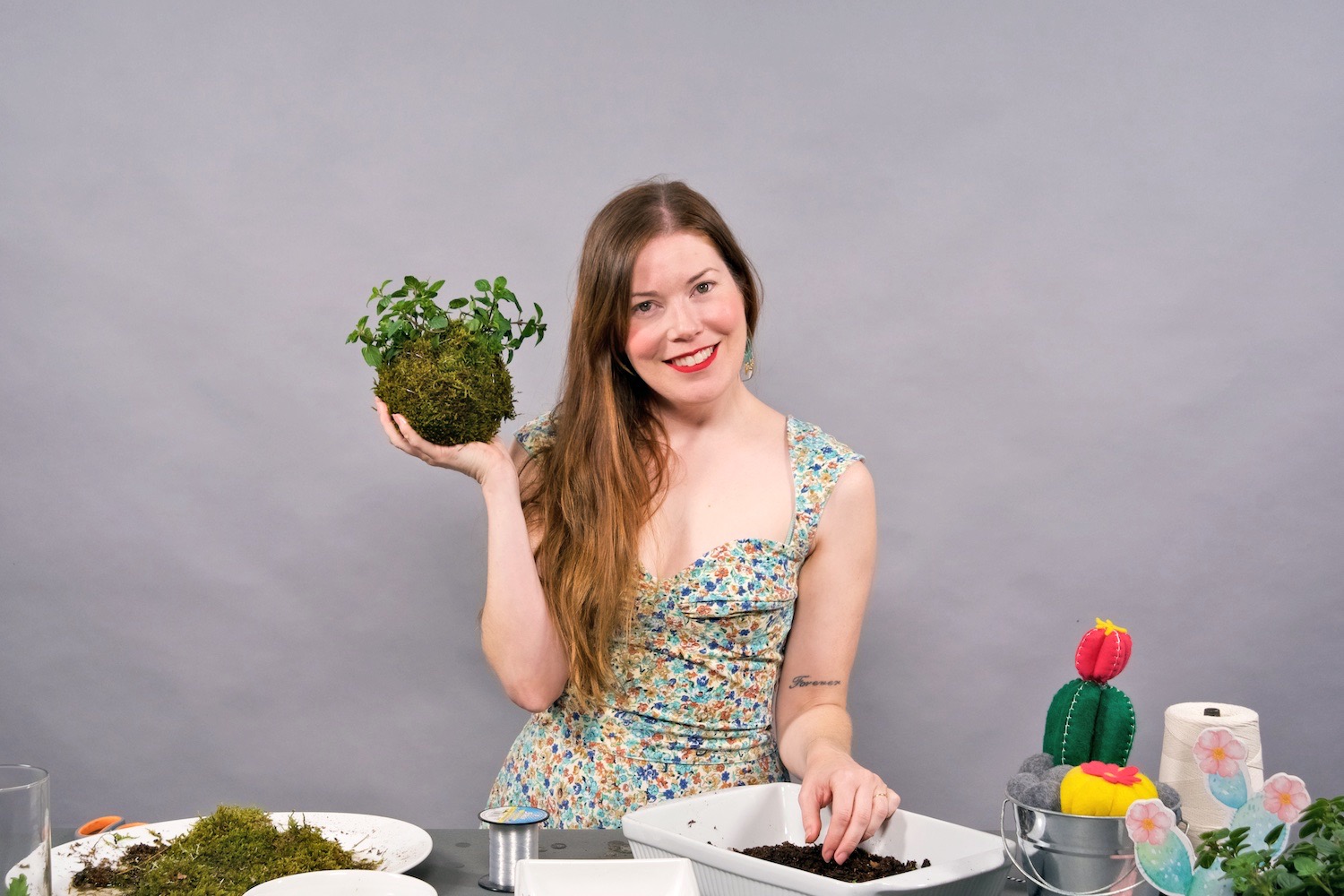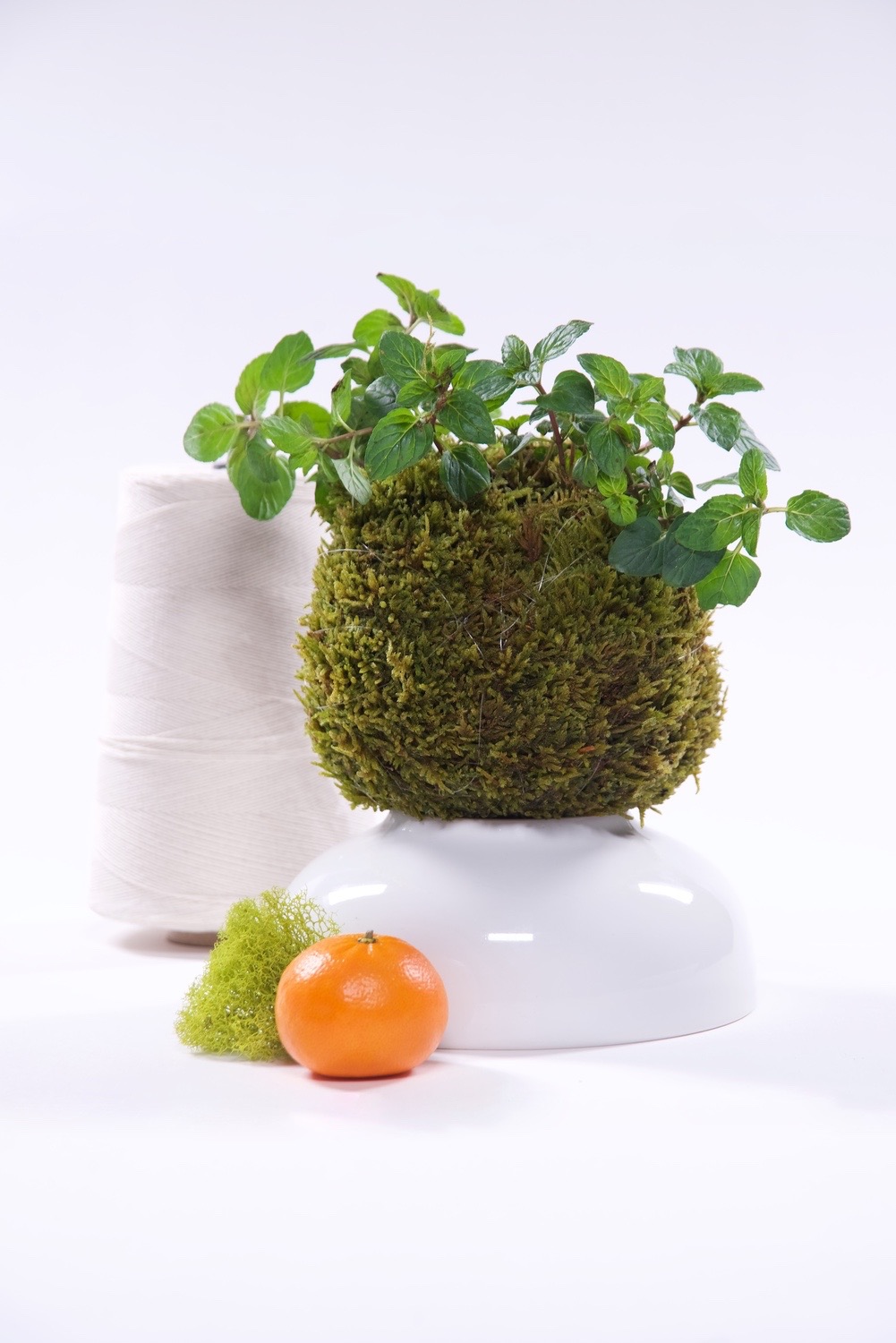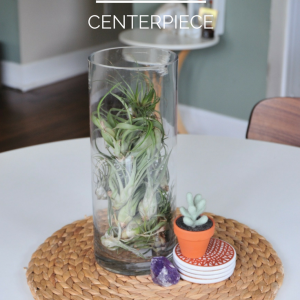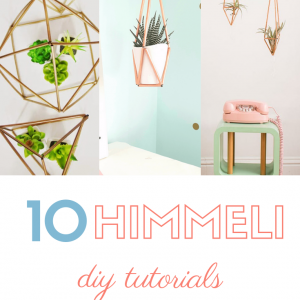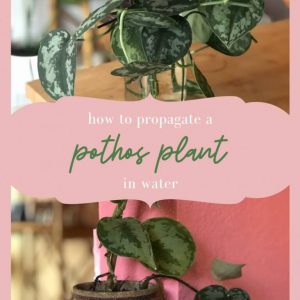Craft in Style Subscription Instructions, Gardening
How to Make a Kokedama
A kokedama is a gorgeous moss covered planter. It doesn’t use a pot or any type of holder but is self contained within it’s moss wrapping. You can place them on a table, use them as a centerpiece, or hang them as a hanging planter.
This type of gardening originated from Japan and is referred to as a poor man’s bonsai. They are easy to care for but require a certain type of plant and very specific light and care for a healthy kokedama.

Supplies to Make a Kokedama
Bonsai Soil
Peat Moss
Sheet Moss (Living, Not Faux or Preserved)
Live Low Light Plants
Twine
Optional: Bentonite Clay
Plus You Will Need: Scissors, Several Large Bowls, & Water
Mix Bonsai Soil & Peat Moss
First, mix together mostly bonsai soil with a small amount of peat moss. I use about 80% bonsai soil and 20% peat moss, but you will see an array of recipes that use everything from 50/50 to what I recommend.
The reason I add a little more bonsai soil than peat moss is that peat moss retains a lot of water. It’s great for keeping plants hydrated. Peat moss is a type of sphagnum moss. It’s dead, fibrous and forms when mosses and other living material decompose in peat bogs.
On the other hand, bonsai soil is a mix of very drying materials like pumice, sand and soil. When you blend these soils together, you can get a bit of both qualities.
Add a lot of water to the soil until you get the texture of brownie batter and make a softball sized ball of soil in your hands.
Squeeze out any excess water. You will know your soil is wet enough because you can toss your mud ball into the air and it will stick together.
If your soil struggles to hold together, you can add a very small amount of bentonite clay. Clay is used in traditional kokedama making, but not always used with modern kokedama gardening.
Split Your Mud Ball in Half
Here’s another example of how modern kokedama gardening can be a little different than traditional methods. With a traditional kokedama, you would use your thumb to make a small hole and place the plant inside.
But this way is so much easier. Instead, split your mud ball in half. Set it aside.
Next, prep your plant by breaking all the soil away from its roots. Place the roots inside the mud ball so that no roots show and the stem and leaves of the plant are outside the mud ball.
Once your roots is in place, squeeze both halves of your mud ball back together. If your mud ball is potato shape continue to squeeze it around the entire body to return it to a rounder shape.
Hold the leaves together as you squeeze your mud ball into a perfect shape. Before you add your moss, it’s easy for your plant to spread. Holding the leaves together with your hand, while you form the mud ball will help the plant take its final shape.
Prep the Sheet Moss
Before you make the exterior of the kokedama, prep your sheet moss. Lay the moss flat on a large plate or bowl, and let it soak in a shallow amount of water. You don’t need a lot of water, just enough to evenly moisten the entire sheet of moss.
Sheet moss will usually be dry when you receive it. When you moisten it, it will make it pliable so you can fold it around the mud ball. And it will instantly brighten the green color!
Moss retains a lot of water, but once you have it attached to the mud ball, you can squeeze out the excess just like you did with the mud ball.
How to Attach the Sheet Moss
Flip your sheet moss so that the brown side is up and the green side is face down. If you see any dry spots, use some extra water to moisten them so that the entire sheet of moss is damp.
Place the mud ball in the center of the sheet moss. Fold the sheet moss around the mud ball before tying it with the twine, so you can get a sense of how you will attach it with the twine.
Choosing Your Twine
The color of twine you choose will determine how your finished kokedama looks. Black twine or clear fishing line is a great way to have a subtle, invisible thread that shows of the gorgeous green of the moss.
Or you can choose any color of the rainbow, or a classic khaki twine for something you can show off. If you choose a colored twine, you may want to be extra careful about how you wrap it around the moss to get even and professional looking loops.
Finishing Your Kokedama
Once you have your twine chosen, fold your sheet moss around the mud ball and the plant so the ends of the sheet moss end around the stems and leaves of the plant.
Cut a small section of twine and tie the moss first around the stems of the plant.
Then continue to wrap, twirl, and tie the twine around the entire body of the kokedama until the sheet moss holds in place.
As you work, you may need to squeeze out excess water from the sheet moss.
If your kokedama is potato shape, use the same motion as you use to squeeze out the excess water to form your potato into a circle shape.
Kokedama Care
A kokedama is a lot like a hanging planter – it will dry out faster than a plant in a pot. To water it, place it in a bowl of water for 5 minutes and squeeze out any excess water. Do this 2 to 3 times a week.
Use plants that prefer shade or partial sun. Moss will brown in full sun and your kokedama will dry out too quickly. Plants like ferns will do well. But plants like flowers will not.
Where to Place Your Kokedama
You can set your kokedama on a gorgeous plate or bowl. Or tie 3 12 inch strings of twine around the body of the kokedama and tie them together above the plant. This will turn it into a hanging object!
Whatever you decide to do, show us in the comments or tag us on social!
And if you need to make your own kokedama, get all the supplies you need here. It comes with everything you need and more! Happy crafting!
Let’s Stay Friends!
Insta | Pinterest | Enews | TikTok


